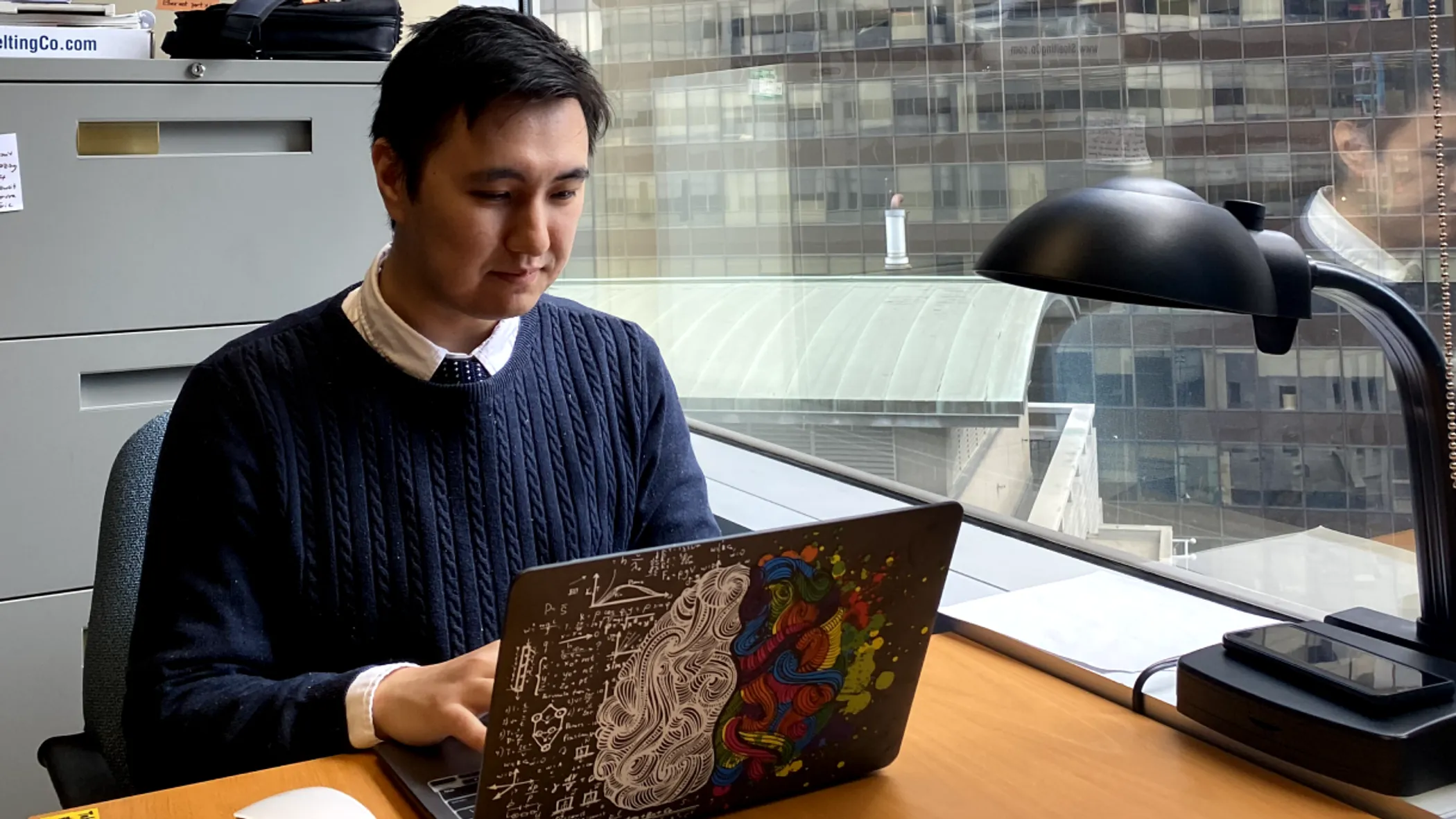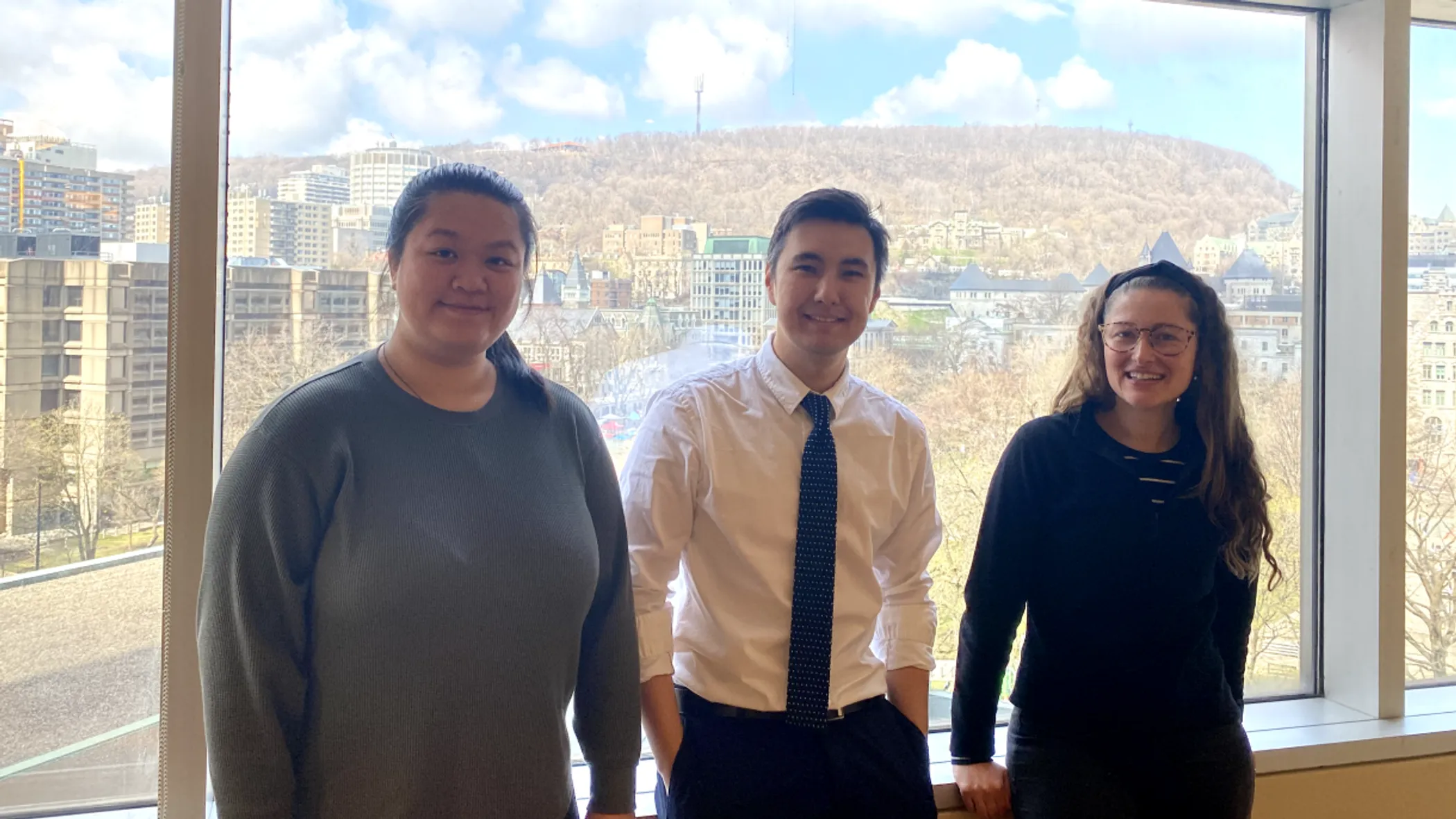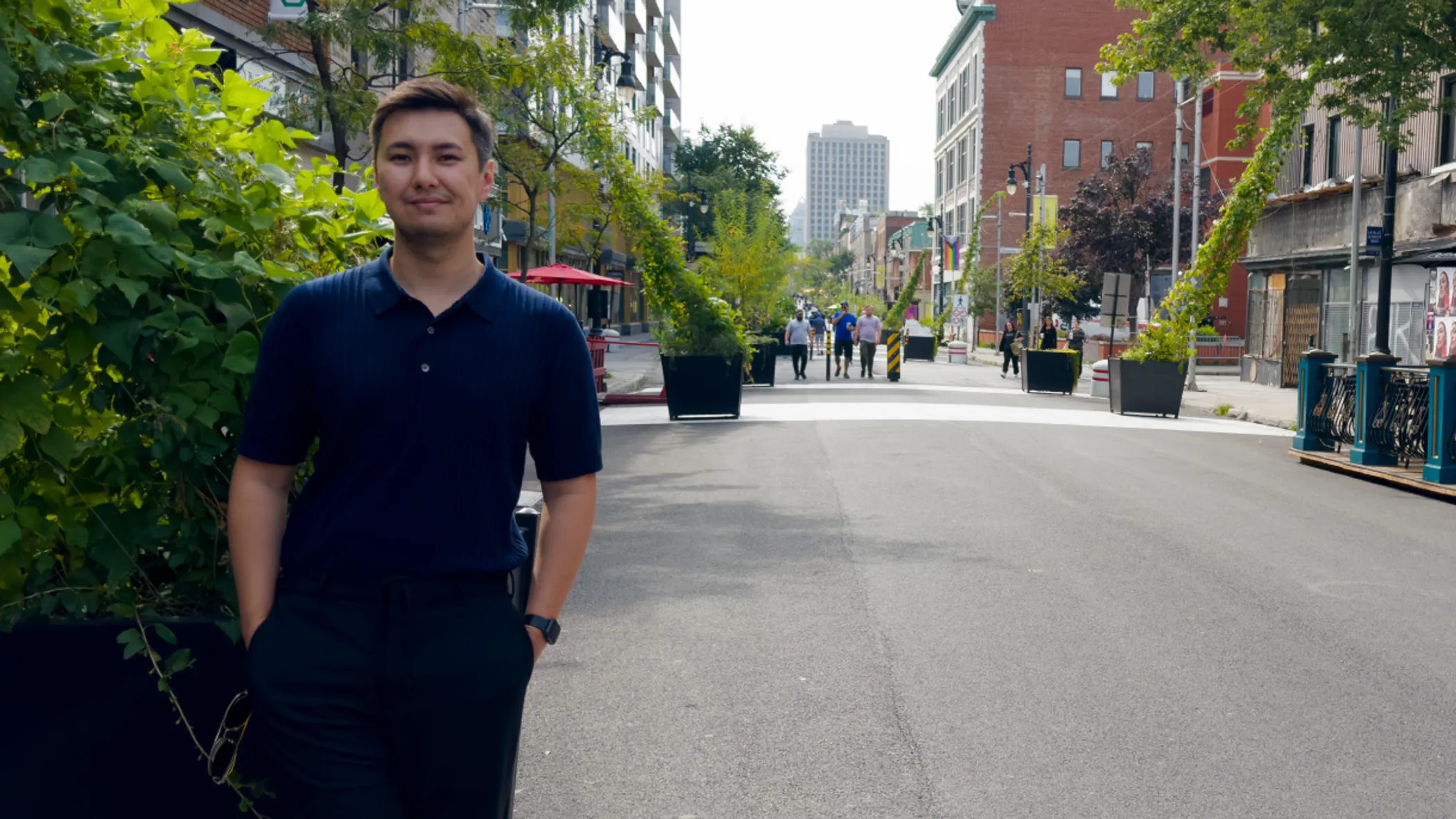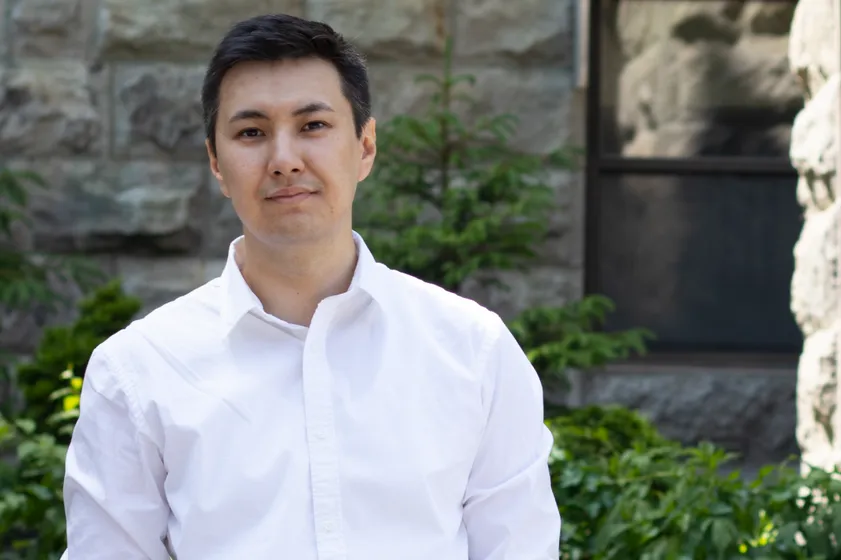Kazakhstan places a high priority on the advancement of science, with state policies highlighting not just the natural sciences and engineering but also the humanities. In April of this year, the President initiated a comprehensive plan to establish robust scientific centers and institutes working in these fields.
What's more, in recent years, grassroots initiatives led by Kazakh doctoral students and researchers have taken root with the aim of informing and educating the general public about pressing social issues. Inclusivity, perhaps one of the defining concepts of our century, is a prominent focus among these efforts, with individuals of all backgrounds and walks of life coming together to work towards a shared goal of making the world a better place for everyone, rather than a select few. Among these champions is Nariman Amantayev, a Ph.D. student and researcher at McGill University in Canada.
Nariman began his journey with a bachelor's degree in Social Work but soon discovered his passion for psychology, education, and assisting children and adolescents with support needs. Eventually, all of this coalesced into his pursuit of a doctoral dissertation in Communication Sciences and Disorders, where he focuses on the study of hot executive functions and their potential connection to the autism spectrum. QazMonitor caught up with Nariman to discuss his efforts in promoting inclusivity and the challenges faced by autistic people in their daily lives in Kazakhstan, as well as his ongoing research into the very heart of human cognition.

What do you study for your research?
I'm studying executive functions of the brain. They are the higher-order cognitive functions that enable us to face everyday challenges and allow us to regulate our emotions. They guide us in achieving our goals and navigating through the days and years of our lives. It's analogous to a driver in your brain, and If you would like to perform a task, you'll utilize your executive functions.
So, for example, even right now, one of these executive functions is inhibitory control, which suppresses distracting stimuli around you to help you concentrate on what I'm saying. Or, something like a working memory. Without it, you will not be able to talk, understand what I'm saying, perform mathematical equations, or operate effectively in daily life because it enables you to perform various tasks.
Researchers distinguish two executive function domains: cold executive functions and hot executive functions. It is believed that hot executive functions are the ones related to emotional regulation and are more closely associated with autism. But it's not a proven argument because we still lack any empirical data to support it. So, I hope that through my research, we will learn more about their role not only in autistic people but also in neurotypical individuals.
What kind of data does it require?
I need to collect data from executive function tasks. For cold executive function tasks, we have the Wisconsin Card Sorting Test, which is considered a gold standard for measuring cold executive functions. And for the second one, we have the EFCT, which stands for the Executive Function Challenge Task. It's a protocol that lasts for twenty minutes and consists of four subtasks in which participant need to verbally generate a plan and respond to provocative flexibility challenges.
We also have language tests on conversational perspective-taking. We trying to understand whether participants produce different lengths of words and different numbers of words under two conditions. When participants see a cartoon with the examiner versus without the examiner, and how participants would describe a cartoon when they view it with the examiner as opposed to when they view it without.
Overall, we have a forty-two-page protocol. Our experiments consist of two sessions and each session lasts for almost two and a half hours. In total, to gather data from one participant, we need to invest five hours of our time, plus, we need to have at least two research assistants. It's very time and effort-consuming, and we need a lot of data. I think that data collection will take at least a year to reach our goal of 100 participants. So far, we have like twelve.

How did you get interested in this topic?
It's a kind of tough question in the sense that I don’t necessarily have an answer. At different stages of my life, I was interested in different things. And the most driven thing that goes like a thread across all this, was this idea of becoming an academic. I was inspired by a professor at a Polish university.
He was our sociology professor, and just looking at him… [You could tell that] he was a misanthrope, very much into his topic. But it seemed like giving us a lecture gave him physical discomfort. He kept to himself, and I thought, 'Are all academic people like this?' So, this struck me, 'This is actually a really interesting path to pursue.'
Was there a starting point that prompted you to venture into popular science? What motivated you to begin?
I posted my very first post about autism on October 11, 2022. It's called 'On autistic individuals and people with Down syndrome: the hidden issues of inclusion in Kazakhstan'. I decided to write about it after a laboratory meeting; we had this conversation on the terminology of autism. There are two schools of thought on how to refer to an autistic person.
So, the first one is where identity comes first – identity-first language. We say 'autism' and then 'person'. So, it's an autistic person, right? And [another school of thought is that] there is a person-first language, where you would say – a person with autism. So, somebody with autism.
In 2021, autistic communities worldwide decided that identity-first language is the most preferable way of addressing an autistic person. We were discussing these matters, talking about the North American and European context. Then I shared what we have in Kazakhstan, and in our country 'аутист' is a bad word. You [can] use this word to insult someone, and I thought I needed to do something about this.
Yeah, and you're Chairman of the Board of Trustees for the Ozim platform, which specializes in promoting inclusivity in Kazakhstan. What is your role in the project?
Ozim is a public fund that has successfully brought together researchers specializing in inclusion, experts in pedagogical and medical therapies, as well as early intervention specialists. Our primary aim is to expand knowledge and enhance awareness within the community of practitioners and parents with children requiring support, including autism.
We provide valuable information to empower parents of children with support needs, sharing essential contacts of rehabilitation centers, facilitating access, and translating international research and literature in both Kazakh and Russian languages. Furthermore, we foster a sense of community by facilitating connections with like-minded individuals and actively engage our audience through participation in informative webinars, focusing on inclusion for both parents and practitioners.
It's essentially about raising awareness, but at the same time, we assist with practical questions, such as where to find inclusive kindergartens, and where to find inclusive specialists or specialists that are well-versed in the subject because we, actually, have a lot of problems with psychiatrists who view autism only from the deficit-based lenses.
We want to provide a roadmap for specialists and parents of children with support needs to assist them in navigating through the bureaucracy of our country. So, we want to help them gain a better understanding of their children's conditions and how to deal with all of it.

Given all this, what do you think the general public misunderstands about autism spectrum?
If we are talking about Kazakhstan, being autistic here means living with a bunch of additional problems. It means that you face difficulties to a higher extent than autistic people from many other countries. You may not notice it when you're three years old, but it definitely affects your family and your close circle.
Autistic people do not have problems with their autism. It's neurotypical people who have problems with autism and all the problems of autistic people begin when they walk out of their apartment. That's why we need to raise awareness about autism among neurotypical people.
The government works to implement various initiatives, including organizing a range of events like concerts and marathons to support autism awareness, and usually families of autistic children are invited to such events. And this is good. But still, they missed the point because families of autistic children already know everything about autism, and we should invite neurotypical people to these events to increase their awareness. This is what we are not doing, and that's the problem.
Even during conferences on autism here, if you take a look at the keynote speakers, you'll see that 99% of them are either from the medical field or pedagogy, and all of them are neurotypical. Once again, we need to hear autistic people, we need to hear their perspectives if we wish to improve their quality of life.
It's called ‘Nothing About Us Without Us’. We cannot make any decisions without asking the people for whom these decisions are made.










